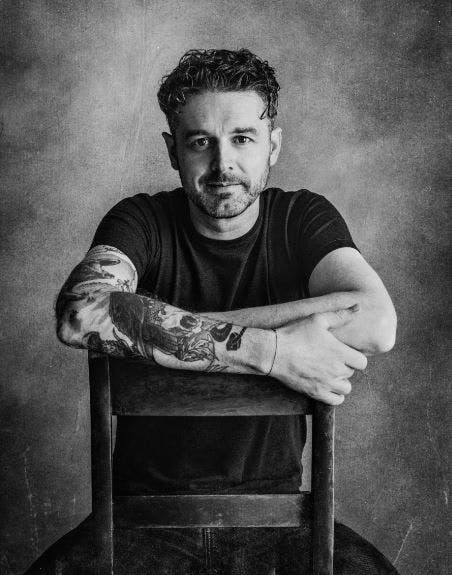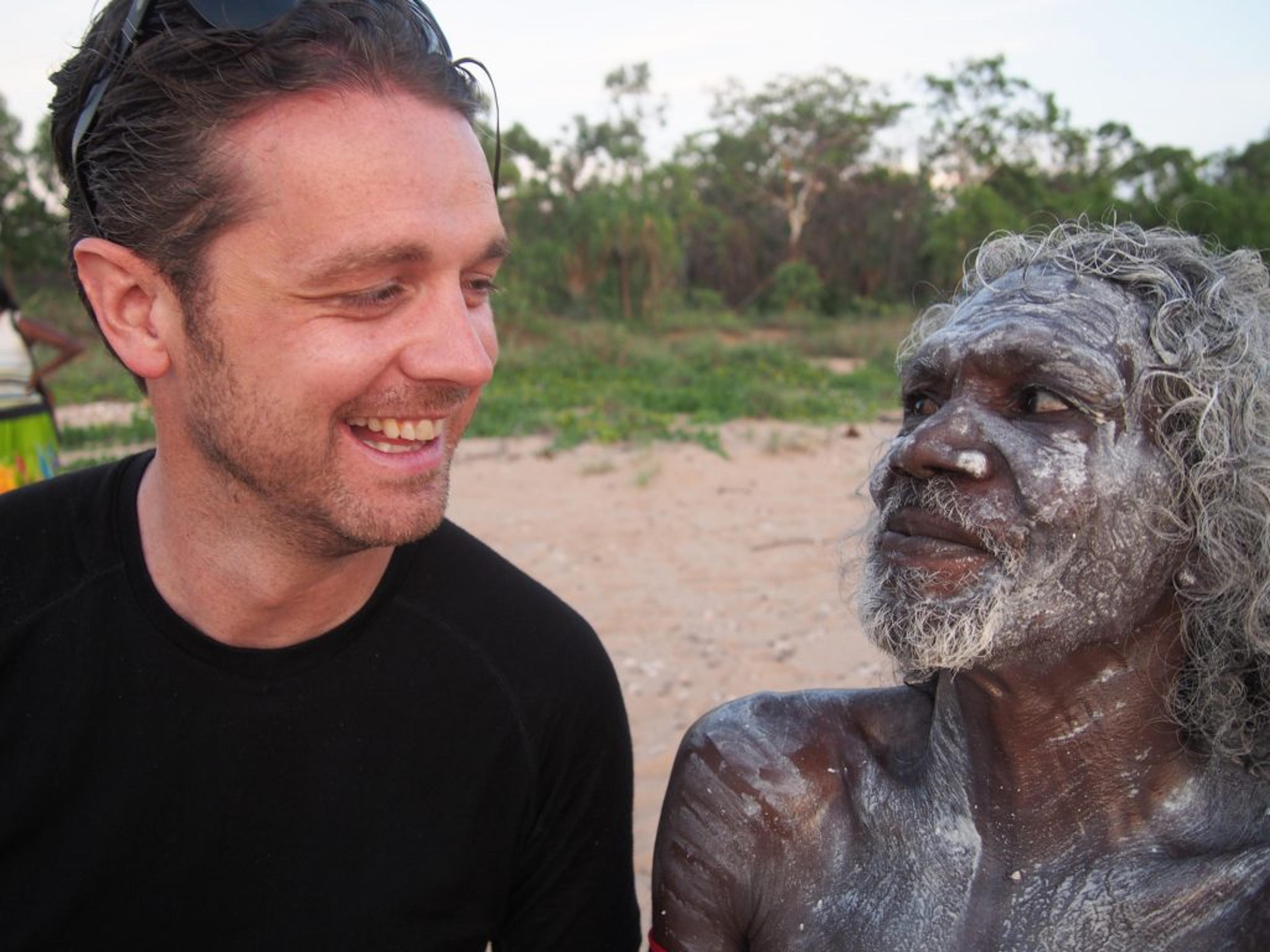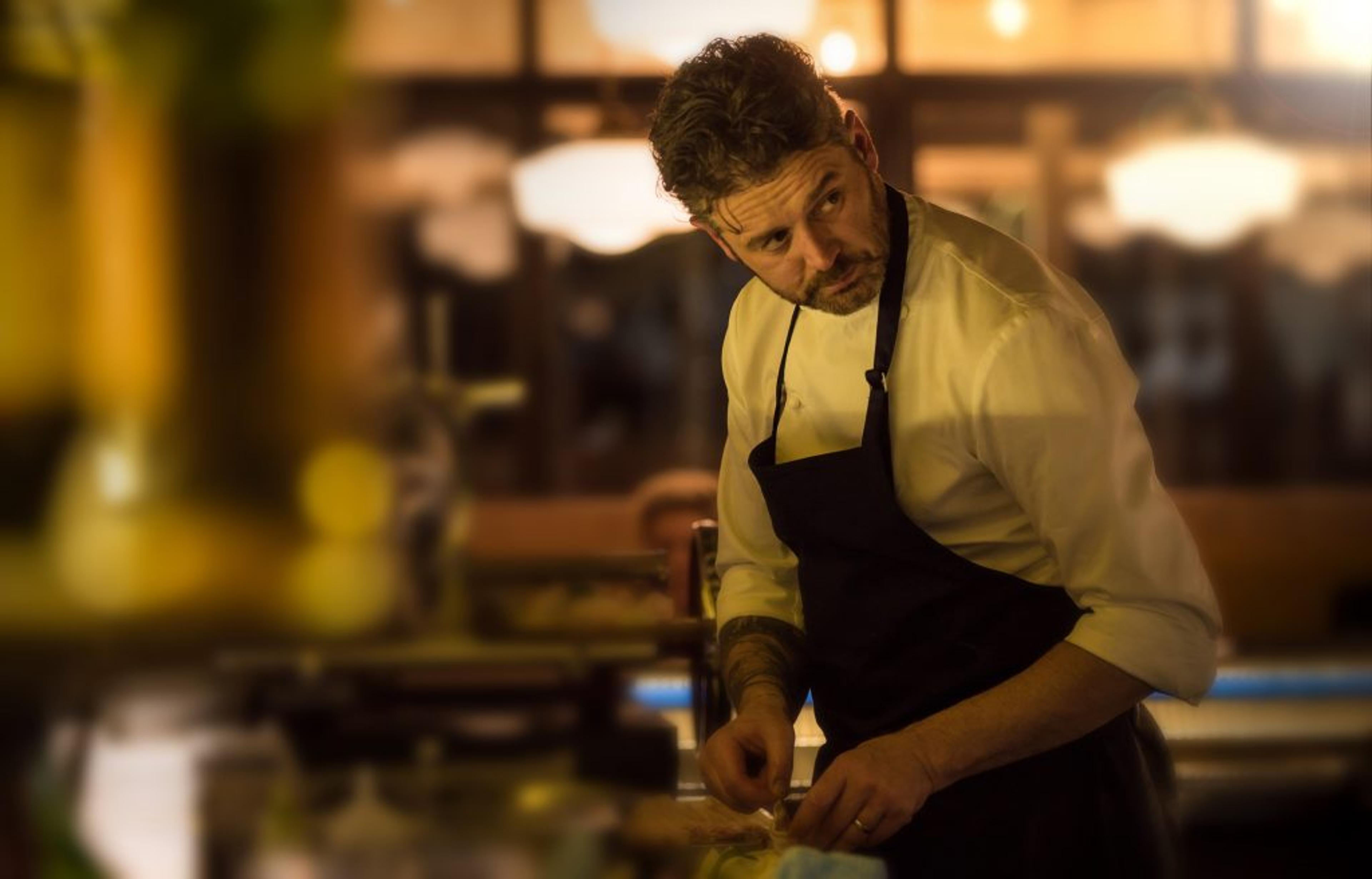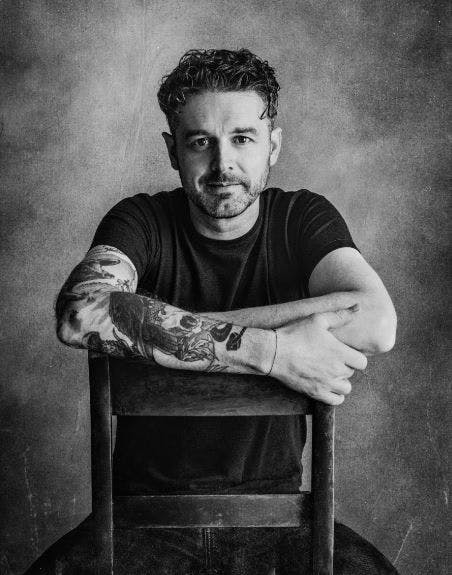It’s amazing how a chance encounter can change your life, and that certainly is true for Jock Zonfrillo. The renowned chef who is half Scottish and half Italian was once described by the late restaurant critic AA Gill as ‘the Mad Max of foraging’. He moved to Australia after working for the likes of Gordon Ramsay and Marco Pierre White in London where he had battled a drug addiction.
Intrigued by the food and ingredients of the Aborigines (the indigenous people of Australia) one day Jock headed down to Sydney Quay where he met Jimmy – an Aboriginal busker with whom he spoke with for over four hours. Jock admits that this chance encounter ‘changed his life’.
House of Coco’s Emma Harrison spoke to Jock about his work in the indigenous community, what it means to him to win the Basque Culinary World Prize in recognition of his work bringing greater awareness to the indigenous communities via his project – The Orana Foundation and why he is somewhat of a reluctant restaurateur.
Congratulations on winning the Basque Culinary World Prize! How does it feel?
Thank you, it’s awesome. Honestly, just being a finalist and to be amongst the other nine finalists is amazing and an honour.
You were unanimously chosen by the jury – this must feel amazing?
To be chosen by these people is incredible and to have the backing of people like that is really something. Of course, for the project itself this means a bigger voice, a greater voice and to have more people to carry the message across. Plus, its recognition for the people that I work with – it’s all good news.
As well as winning the prestigious title – you will also be awarded €100,000/158,000 Australian dollars which can be used for the Orana Foundation – how will you use this and what are you hoping to achieve?
That is something we must deliberate over very carefully and 100% of the benefit will go to the indigenous people. The awareness will be great for Orana – the foundation as well as for the restaurant. The acknowledgement that this will bring is phenomenal and often that is what makes a difference. It’s not just about the money it’s about the acknowledgment and recognition.

You have visited hundreds of remote communities to understand the origins of ingredients and their cultural significance – how did you decide what communities to visit?
I took a real salesman approach and the first one I picked was right in the middle of the country and I thought that this was the place to go, right in the heart of it all. It took a long time to get there. I got turned away there several times but on the seventh visit – I was let in and I was only there for a day and a half until I got thrown out by the police as I didn’t have a permit. That kind of summed up the situation to me at that point and I looked at it like ‘I have been invited in here by these people and they have asked me to sit with them, yet I have been thrown out by a policeman because I don’t have a piece of paper. It’s ridiculous. I was always very careful to be very respectful about what I do and who I speak to.
I am fascinated by some of the ingredients that you are using or have used such as riberries, Kakadu plums, quandongs and lemon myrtle – how do you come up with dishes using these ingredients – do you take inspiration from the communities in which they are grown?
A lot of it starts with if I have seen or heard about it as well as researching it. I look at traditional uses of ingredients and try using it like they do – you then start to put the pieces together. We bring it back into the restaurant and go through a process of working out how best to utilise that.
Sometimes it just takes time you know. By no means am I or any of my team experts in indigenous anything. First and foremost, we never speak for indigenous people, secondly, we don’t know everything – at all. We certainly weren’t the first people to use native ingredients, but I think we are the first people to go into it in any great detail with the indigenous people. I have been very conscious about carrying out that kind of respect to them and asking what they want. It’s not about what we want to do as a restaurant or foundation – we want to help where we can. We take the lead from them.
You are not speaking for them – you are just giving them a voice.
Exactly! Exactly! We are in a very fortunate position in gastronomy now and as chefs we have a duty of care to use our voice to whatever cause we see fit if it is for positive change.

It seems that they are very accepting to invite you in to their communities – is this always the case or is there some suspicion on their parts? Do you ever receive feedback from them about what you are doing?
There is always feedback and there are always gatekeepers and unfortunately that is a big thing in the indigenous space. We have taken the standpoint that we are experts in food, so we are not going to get involved in political conversations. We just want to have a conversation about food. We are not politicians walking into a community – I am just a chef and so the conversations that we have make the walls come down. We are talking about food something that is a huge part of their culture.
There has been 17 years of this conversation. I can move in ways that others can’t in those areas, but there will always be gatekeepers, but it doesn’t stop us, and we play by the rules of gastronomy and that is very different from every other field I think.
Food is a great leveller isn’t it?
That’s right, exactly – it’s not the most common denominator but it is something you can speak about and have a cultural connection with.
You launched your restaurant Orana in 2013 – did you always have a vision of having a restaurant that celebrates Australia’s Indigenous culinary history?
Exactly – I did the whole Michelin star and fine dining thing to death – and really for me if I couldn’t cook that food then I wouldn’t do it and it was too early to open it. I didn’t really want to open a restaurant, but it quickly became apparent that nobody knew what I was talking about when it came to the indigenous food and ingredients nobody could quite understand the magnitude of what I was talking about. It should be common knowledge but it’s not.
Five minutes on Google and you can find various bones, tools, weapons that have been uncovered. People go crazy when the Pharaoh’s exhibition comes to London Zoo – people are doing bloody backflips and it’s the same thing in Adelaide – there’s a boomerang that’s tens of thousands of years old and nobody gives a shit about it and you think that was the first aerodynamical thing – do you know what I mean?.
It takes conversations for people to have a lightbulb moment and say yeah right ok not only is there these amazing possibilities in food but there is also an acknowledgement and respect around indigenous people. In Australia, indigenous people have a long history with knowledge of these lands which are harsh, yet you have a whole culture of people that know it like the back of their hand.

You launched the Orana Foundation two years ago – why did you create it and what are your wider goals for this?
It’s pretty safe to say that 45 -50 thousand years before the Egyptians built the pyramids the indigenous people were here in Australia living off the land and were farming in a way that was sustainable and that has possibly been forgotten. The tools that have been found brings into question when the first loaf of bread was made. This stuff just doesn’t get heard – no one wants to talk about it and it gets brushed under the carpet.
I think acknowledgment goes a long way and there is a bit of a gap there and a lot of it is down to acknowledgment and recognition. The Australian government are making great leaps and bounds to closing that gap in various ways.
I was in a position as a chef to make that change and the Orana restaurant is a direct result of that – wanting people to understand so that is why I started the foundation and to start the foundation I had to do the restaurant.
I didn’t want it to be a fine dining restaurant and to make lots of money in the process, but I knew I had to do that to get an audience and awareness of the restaurant. When someone sits down at the restaurant, they hear the stories and we talk about the culture – you can see it, hear it, taste it, smell it and understand it – but without the restaurant it would have been impossible to start this foundation and that’s why the restaurant exists. It’s just feels like it has been a jigsaw – we have had to do each little bit at a time and we will continue doing that.
I do want the indigenous culture to have acknowledgment and after that comes meaningful conversations about indigenous-led enterprises. It’s about moving forward where we can to assist them and make a difference and a lot of this can be done through indigenous enterprise which can create jobs and opportunities in indigenous communities and it all goes back into the indigenous communities.
You were named as Australia’s Hottest Chef in 2017 by The Weekend Australian Magazine’s Hot 50 Awards, you won two national ‘Good Food Guide’ awards earlier this year and Orana was recognized as Australia’s Restaurant of the Year in 2017 by the Gourmet Traveller magazine, the first time a restaurant using indigenous ingredients has won this award – how important are these kinds of accolades?
Any kind of recognition goes a long way and we are honoured whenever we pick up any other kind of award really. Winning Restaurant of the Year was amazing, and the team deserved to win – I have never met a harder working more cohesive bunch of individuals in my life. The reason we have longevity is the staff they are not just working in the restaurant they are working for something much bigger – so our staff retention is phenomenal.
Looking back at yourself as a teenage when you went to work for Marco Pierre White – it must blow your mind as to how much you have turned your life around? What would you say to your 16-year-old self?
I would be frightened to say anything just in case it turned out differently. If you have told me then that I was going to be working with indigenous people – I would have laughed and said don’t be ridiculous, I am going to be running a Michelin star restaurant, but Michelin stars became the exact opposite of what I wanted to do. I never considered for a second that I would be doing what I am doing now, and that the restaurant wouldn’t be my main focus either.
When I had that conversation with Jimmy – I knew that was significant – it was just mind-blowing for me.
Every chef that I have worked with has influenced me – I can take my hand to a fine dining dish as I can a bistro restaurant – sometimes we do have intricate dishes at Orana which could be perceived as fine dining.
What inspired you to start cooking in the first place?
If you speak to my mother she will tell you that I was always writing about what we had for dinner the previous night in my homework – what I cooked with my Nono and everything was always about food. One half of my family is Italian food is a very strong conversation in my family and the dinner table was a very important place. I also understood cultural differences and that was very apparent to me from a very early age. They are all part of a fabric that makes up my story.


Comments are closed.